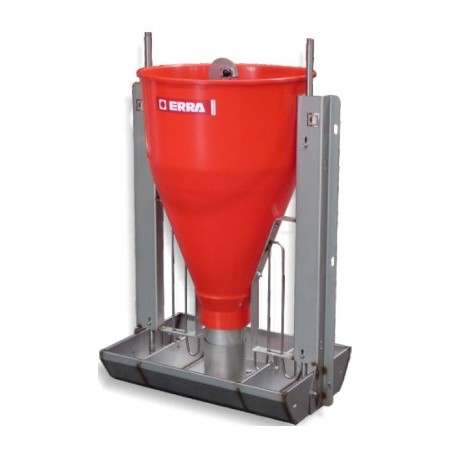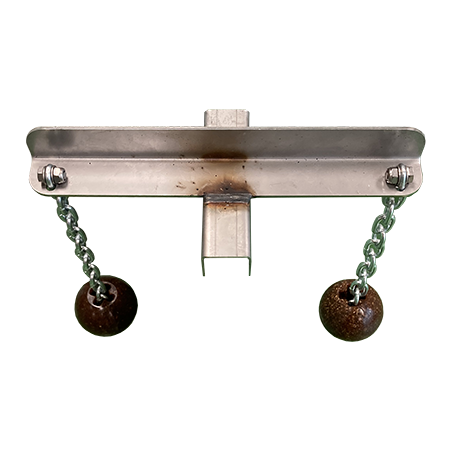Iron (Fe) is an essential trace element involved in multiple biological processes in the body. However, supplementation of Fe in most of the pig commercial diets is approximately 6 to 10 times that of the NRC (National Research Council) requirement estimates. The objective of this research was to investigate the effects of supplementation with different levels of Fe on Fe status, growth performance, intestinal development, and immune function, as well as nutrient digestibility in growth-finishing pigs. For this purpose, 1200 pigs ([Large White × Landrace] × Duroc) with an average initial body weight (BW; 27.74 ± 0.28 kg) were housed in 40 pens of 30 pigs per pen and were fed 5 different diets, blocked by BW and gender (eight replicates per diet). The five experimental diets were control diet (basal diet with no FeSO4 supplementation) and the basal diet supplemented with 150, 300, 450, or 600 mg/kg Fe as FeSO4 diets. The trial lasted for 100 d and was divided into the growing phase (27 to 60 kg of BW) for the first 50 d and the finishing phase (61 to 100 kg of BW) for the last 50 d. The basal diet was formulated with a Fe-free trace mineral premix and contained 203.36 mg/kg total dietary Fe in the growing phase and 216.71 mg/kg in the finishing phase based on ingredient contributions. At the end of the experiment, eight pigs (four barrows and four gilts) were randomly selected from each treatment (selected one pig per pen) for digesta, blood, and intestinal samples collection.
The results showed that the average daily feed intake, average daily gain, and BW increased linearly in the finishing phase of pigs fed with the diets containing Fe. On the other hand, supplementation with different Fe levels in the diet significantly increased serum iron and transferrin saturation concentrations, goblet cell numbers of duodenal villous, and MUC4 mRNA expression. Apparent ileal digestibility of amino acids for pigs in the 450 and 600 mg/kg Fe groups was greater than for pigs in the control group.

In conclusion, dietary supplementation with 450 to 600 mg/kg Fe improved the growth performance of pigs by changing hematological status and by enhancing intestinal goblet cell differentiation and apparent ileal digestibility of amino acids.
Deng Q, Wang Y, Wang X, Wang Q, Yi Z, Xia J, Hu Y, Zhang Y, Wang J, Wang L, Jiang S, Li R, Wan D, Yang H, Yin Y. Effects of dietary iron level on growth performance, haematological status and intestinal function in growing-finishing pigs. Journal of Animal Science. 2021; 99(1): 1–11. https://doi.org/10.1093/jas/skab002





